Here's how to enable or disable Compact Mode in File Explorer in Windows 10. Starting in build 21337, Windows 10 uses a new layout for the File Explorer. It now has extra padding in the file list and navigation pane. Microsoft made it in order to get a uniform look of all apps in Windows 10, which now contains plenty of touch-oriented Store apps.
Advertisеment
File Explorer is one of the oldest Windows apps. First introduced in Windows 95, it plays the important role in the OS. First of all, it is the default file management tool. It allows you to create, copy, move and delete files and folders. Besides file management operations, Explorer.exe also implements the shell - the Desktop, taskbar, desktop icons are parts of the Explorer app. It used to have the Start menu as part of the shell, but it is no longer a case in recent Windows 10 releases.
File Explorer is getting enhancements with each and every release of Windows. For example, Windows 8 File Explorer has got the Ribbon user interface and the quick access toolbar, which are now available in Windows 10.
Starting in build 21337 File Explorer, the default layout includes extra padding between elements.
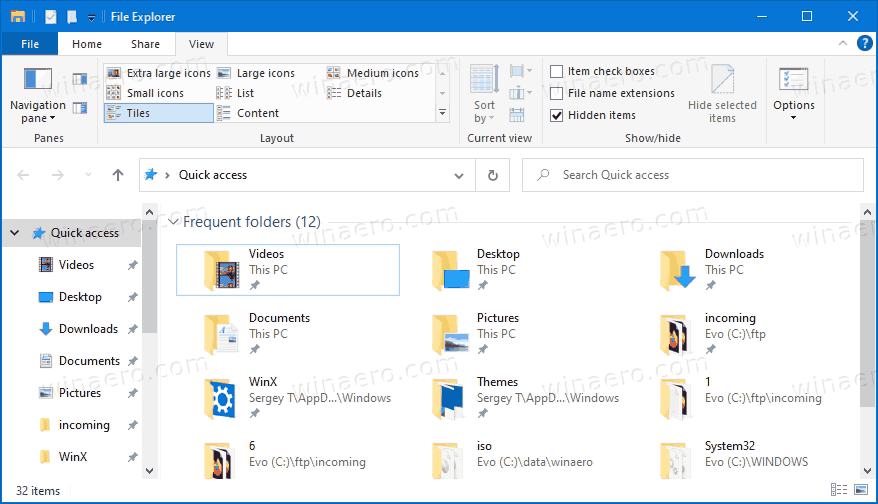
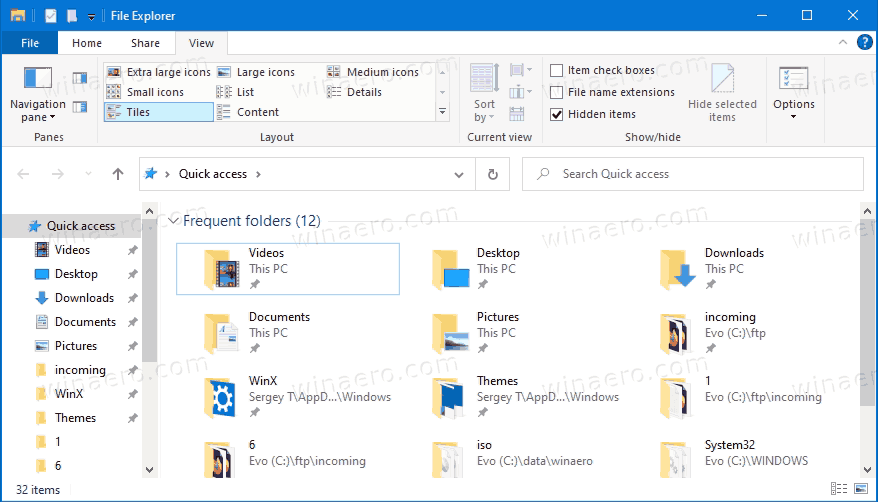
To restore the classic item density, you can use a new setting in View Options called Use compact mode.
This post will show you how to enable or disable Compact mode in Windows 10 File Explorer. There are two methods you can use.
Enable or Disable Compact Mode in File Explorer in Windows 10
- Open File Explorer.
- Click on the Folder Options command on the View tab of the Ribbon.
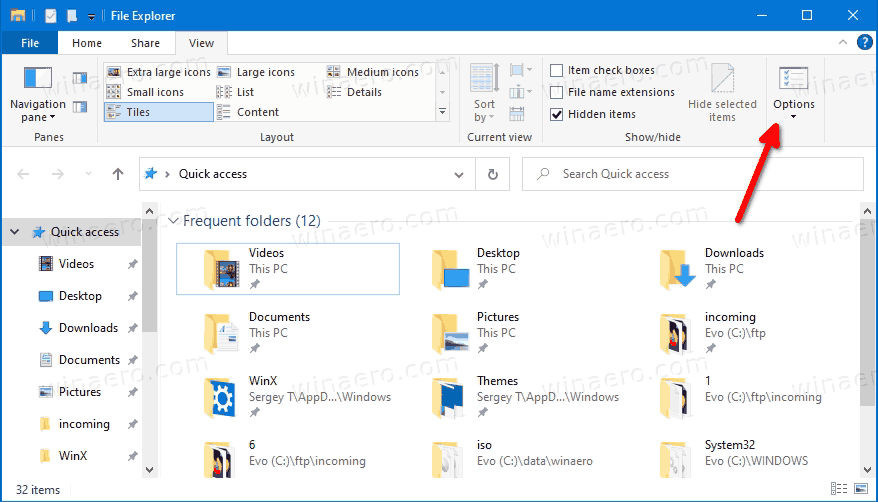
- Switch to the View tab in the File Explorer Options dialog.
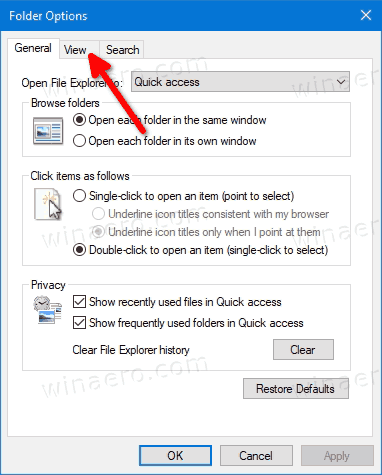
- In the Advanced settings list, enable (check) or disable (uncheck) the Use compact mode option for what you want.
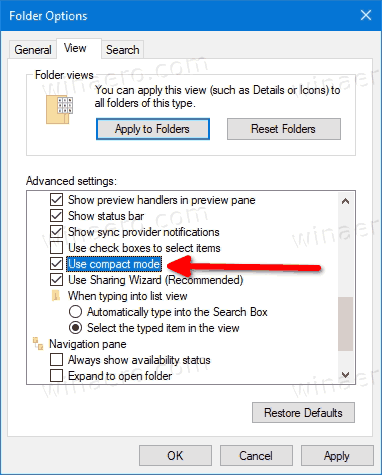
- Click on Apply and OK.
You are done.
Alternatively, you can apply a Registry tweak to enable or disable this option. Here's how it can be done.
Turn on or off Use Compact Mode in the Registry
- Open the Registry Editor app.
- Go to the following Registry key.
HKEY_CURRENT_USER\Software\Microsoft\Windows\CurrentVersion\Explorer\Advanced\
See how to go to a Registry key with one click. - On the right, modify or create a new 32-Bit DWORD value
UseCompactMode.
Note: Even if you are running 64-bit Windows you must still create a 32-bit DWORD value. - Set its value to 1 to enable the compact layout.
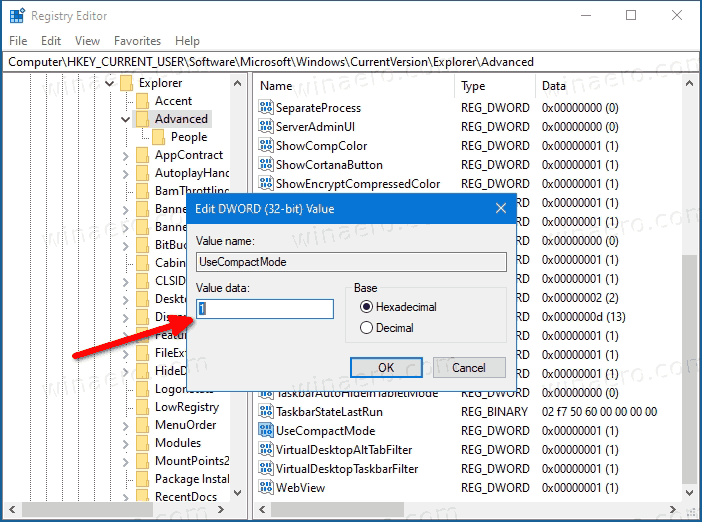
- A value data of 0 will disable it and put extra padding to elements in the UI.
- To make the changes done by the Registry tweak take effect, you need to sign out and sign in to your user account. Alternatively, you can restart the Explorer shell.
You are done.
To save your time, you can download the following Registry files.
Download ready-to-use Registry files
The archive includes the following files.
-
Enable compact mode in File Explorer.reg- enables the classic element density in File Explorer. - Disable
compact mode in File Explorer.reg- restores the default wider look of Windows 10 File Explorer
That's it.
Support us
Winaero greatly relies on your support. You can help the site keep bringing you interesting and useful content and software by using these options:

I wonder how much padding they added to List View.